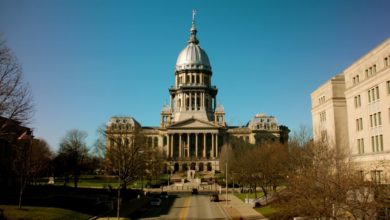Update: In the face of public outrage, Tucson Unified School District has issued a “clarification” of its original directive. Apparently the books have not been “banned,” instead they have been “removed from classrooms” and placed in district storage. This includes teachers’ personal copies of books. Students may still borrow the books from school libraries, where one or two copies are available.
“In regards to this double-speak about these books being banned,” said Cholla High School teacher Lorenzo Lopez, “it is irrelevant if these books are banned from the entire district or just from our classes. If our kids can’t have access to that knowledge, and it was urgent that these books be removed immediately from our classes, they are, in effect, banned.”
Shortly after the racist ruling by administrative Judge Lewis Kowal on Dec. 27, the Tucson Unified School District board voted four to one Jan. 11 to eliminate the acclaimed Mexican-American Studies program. Facing the prospect of losing $4.9 million this month and as much as $14 million this fiscal year, the board chose to reverse years of progress by eliminating a progressive educational program.
Much of the blame can be placed on Superintendent of Public Instruction John Huppenthal, who mercilessly dangled much needed public funds in front of a school district that, like many public schools across the country, is facing a fiscal crisis. However, as if having succumbed to this blackmail were not enough, the TUSD created a list of banned books as part of the restructuring of their social studies program.
The list of banned books was part of a general orientation given by administrators to teachers, instructing them to stay away from units where “race, ethnicity, and oppression are central themes.” (Salon.com, Jan. 13) Classics of liberation like Paolo Freire’s “Pedagogy of the Oppressed” and Rodolfo Acuña’s “Occupied America: a History of Chicanos,” along with the award-winning text book “Rethinking Colombus: The Next 500 Years,” were just a few named on the list. Even Shakespeare’s play “The Tempest” was banned under this rubric.
Had books been banned in a formerly colonized nation in the sights of U.S. imperialism, the media would have been outraged by the inhumanity. But because this is an attack against the oppressed in the heart of this empire, the media remains silent or treats it as another “controversy” in which two sides are simply in disagreement.
The banning of books by Native and Chicano authors in Tucson is reminiscent of what happened in Palestine when Israel passed the “Nakba Law,” which eliminated funding from organizations that shine light on Israel’s oppressive past. Yet because the apartheid state of Israel is a key ally of U.S. imperialism, the media remained silent.
As many reflect on the legacy of Martin Luther King Jr. in a country riddled with injustice and inequality, these racist acts seek to silence an era of awakened empowerment. Years after King’s assassination, in the allegedly “post-racial” age of Obama, racism in part takes the form of washing away the recognition of racism’s existence, imposing a false “colorblind” narrative that whitewashes the collective history of struggle of the oppressed. It is imperative that the oppressed and the working class as a whole fight to end the divisions forced upon us by ruling class.






